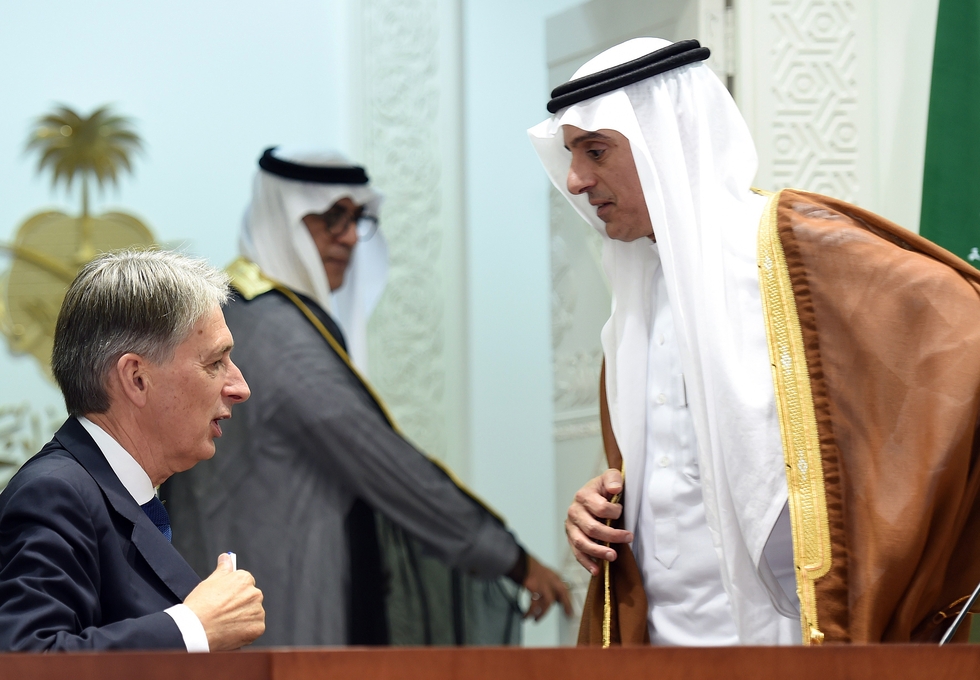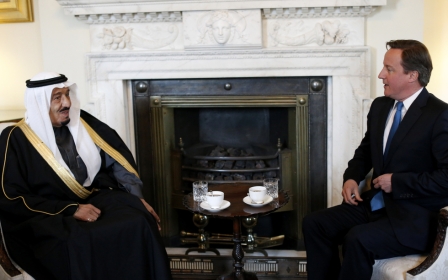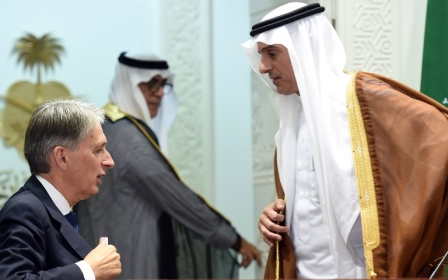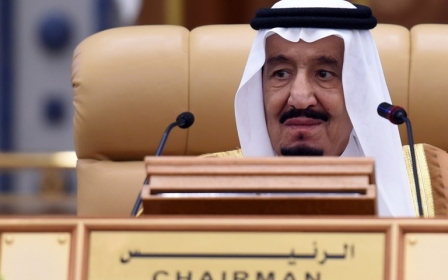In defence of pragmatism: The case for British-Saudi alliance

The familiar cliches for too long propagated in Western commentary about Middle Eastern politics have been debunked and exposed in recent years. With popular uprisings and disavowals of state censorship exploding all over the region, Saudi Arabia nonetheless retains its traditional monarchy, invested with an omnipotent arsenal of legislative, executive, and judiciary powers. The Arab Spring never seemed to arrive on the streets of Riyadh and Mecca. And with the list of human rights abuses in the country seemingly mounting every day, it is often asked why Britain boasts such intimate alliance with this ruthlessly illiberal Arab power.
Now more than ever before, regional powers in the Middle East are become more assertive in geopolitics than the Old Guard of Western Europe and the United States. In such a climate, with the rise of Iran and Turkey, and the threat posed by Islamic State to the lives and security of millions in the Arab World, it is imperative to re-invigorate Saudi Arabia’s status as the natural ally of Britain in the Middle East. In an age when unprecedented alliances have sprung up, with Russia and Iran becoming ever closer, Britain’s relationship with Saudi Arabia can and should be defended in the strongest terms.
There are many topics that bear on the question of the British and Saudi relationship, commonly taken to be one of distant friendship at best and fragile alliance at worst. Human rights come up ubiquitously in popular discussion of Saudi Arabia’s monarchy, as does Saudi’s dubious stance on Israel. However, these considerations do not entail that Britain should do anything to weaken or even question its strong alliance with Saudi Arabia. On the contrary, there is a powerful case for believing that Britain’s alliance with Saudi Arabia needs to be asserted with greater confidence and security than it enjoys at present.
Saudi Arabia has long supported Palestinian rights to sovereignty, although its approach to Israel has become less absolute in the last few years. Since 2002, the late King Abdullah – then Crown Prince – extended several multilateral peace proposals to the Israeli president, though this remains the full extent of Saudi-Israel exchange. Saudi Arabia does not have diplomatic relations with Israel: on the contrary, it participates in active economic boycott of Israel and its foreign minister has formally supported the BDS (boycotts, divestment and sanctions) Movement in the UK. Whilst this coheres with the foreign policy of most Arab nations, it is striking that one of the US and UK’s most cherished allies should maintain such a sharp distance from the one country that stands out as the US’s dearest friend outside NATO.
Reflection on Saudi Arabia’s relationship with Israel and with the US reinforces the fact that Britain maintains a close relationship with Saudi largely independently of British ties with any other prominent power. After all, Britain has long enjoyed a close working relationship with Saudi Arabia, with London being the site of Saudi's second embassy in 1930, just five years after the nation’s birth. The UK remains the only country to have more than two official foreign offices in Saudi Arabia. Although in 2012 and 2013 relations soured owing to Britain’s proposed parliamentary enquiry into Saudi investment in arms companies, Saudi continues to be regarded by the British government as a vital part of the solution to counter-terrorism co-operation in the Middle East.
In discussions of the intimacy engendered between the British and Saudi governments, the description "ally" is almost always prefixed with "important" or "strategic". All this talk of "strategic" forging of alliances invites the question: is Saudi Arabia a friend to Britain or an ally? And this in turn anticipates a more fundamental question: what’s the difference?
Quite plausibly, friends on the international stage share intimate information, often with likely or certain risk if betrayal or sabotage should happen. Allies tend not to do this, keeping one another at an arm’s length. And friends are prepared to display a private face to each other, exposing their weaknesses and seeking counsel regarding controversial, even damaging, matters. Allies tend to stick to maintaining a public appearance of solidarity and respect, and keep their private side hidden.
On both these counts, Britain’s friends are her European neighbours, as well as the US, Canada, Australia, New Zealand, and to a lesser extent former Commonwealth states. These nations are to Britain trustworthy kin, almost familial.
On the whole, Saudi fulfils the "ally" conditions very convincingly, but it is difficult to categorise Saudi as a "friend" to Britain in the way that Canada or France paradigmatically are. Prince Charles does enjoy relative influence among the Saudi royal family, as demonstrated in the past month in his request to King Salman that Raif Badawi – a 31-year-old Saudi journalist threatened with flogging – be given a more lenient sentence. The British government and foreign office tread with sensitivity in liaising with the Saudi government and media.
This cautious style is much less obvious than Britain’s day-to-day dealings with the European Union or indeed with Commonwealth countries: it’s a description that better fits Britain’s relationship with Russia or with China than with France or Australia. Note that many in the British government, and the public at large, were quick to almost unthinkingly publicly express solidarity with Paris after the recent terror attacks there. It is far from obvious that the British public or government would quite so readily and confidently nail their colours to the mast of Riyadh or Jeddah.
Last month the UK government withdrew its $8.9mn prisons deal with Saudi Arabia, stressing its prioritisation of domestic justice policy over pursuit of international contracts. However, Justice Secretary Michael Gove affirmed that part of the government’s motivation in terminating the contract was concern over Saudi Arabia’s human rights record.
It is impossible to ignore the very real human rights violations that abound under the rule of Saudi’s unelected monarchy. Saudis do not enjoy the same free speech, gender equality, and freedom of assembly that Britons boast. And regionally, it is often argued that the Saudi government, with its vast wealth and oil reserves, constitutes a powerful counter-revolutionary buffer in the Middle East. Although occasionally praised for its official denunciation of Islamic extremist parties and lobbying groups, the Saudi Kingdom is rarely identified with a progressive vision of the Arab World.
International diplomacy does not operate without compromise. It involves disagreement. It is messy, and few hands are clean. But to water down the strength of British relations with Saudi Arabia would be a grave error. As the 2013 UK foreign affairs committee noted, there is a need – not some desire or free-floating wish, but an urgent, unyielding need – to maintain relationships with undemocratic and conservative regimes that are important to British interests on a regional and global level. Maintaining close ties with Saudi Arabia is better than almost all the alternatives.
It’s good for Britain’s interests. It’s good for Saudi’s interests. And, as far as one can speculate from a distance about such things, it’s good for security and stability in the Middle East as a whole. And besides, calls for reform are likely to have far greater impact coming from a trusted and valued ally than cries from an outraged protestor, or worse still a distant Western neo-colonial government, could ever be.
- Chris Lynch is a graduate student interested in philosophy, politics, literature, and current affairs. He has lived in Bahrain, Saudi Arabia and London. A philosophy graduate of Cambridge University, Lynch has worked as a correspondent for The Cambridge Student and The Guardian, and as an intern for the current affairs magazine "spiked". He is currently Associate Editor of the interfaith student journal Convocamus printed by St Andrew's University in Scotland.
The views expressed in this article belong to the author and do not necessarily reflect the editorial policy of Middle East Eye.
Photo: British Foreign Secretary Phillip Hammond (L) and his Saudi counterpart Adel al-Jubeir leave after a holding a press conference at the Saudi foreign ministry press hall, on 28 October, 2015 in Riyadh (AFP).
New MEE newsletter: Jerusalem Dispatch
Sign up to get the latest insights and analysis on Israel-Palestine, alongside Turkey Unpacked and other MEE newsletters
Middle East Eye delivers independent and unrivalled coverage and analysis of the Middle East, North Africa and beyond. To learn more about republishing this content and the associated fees, please fill out this form. More about MEE can be found here.





